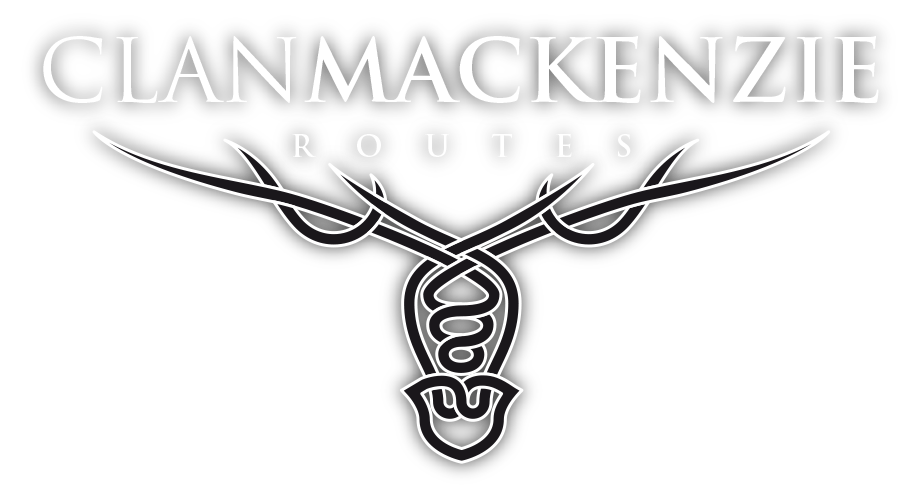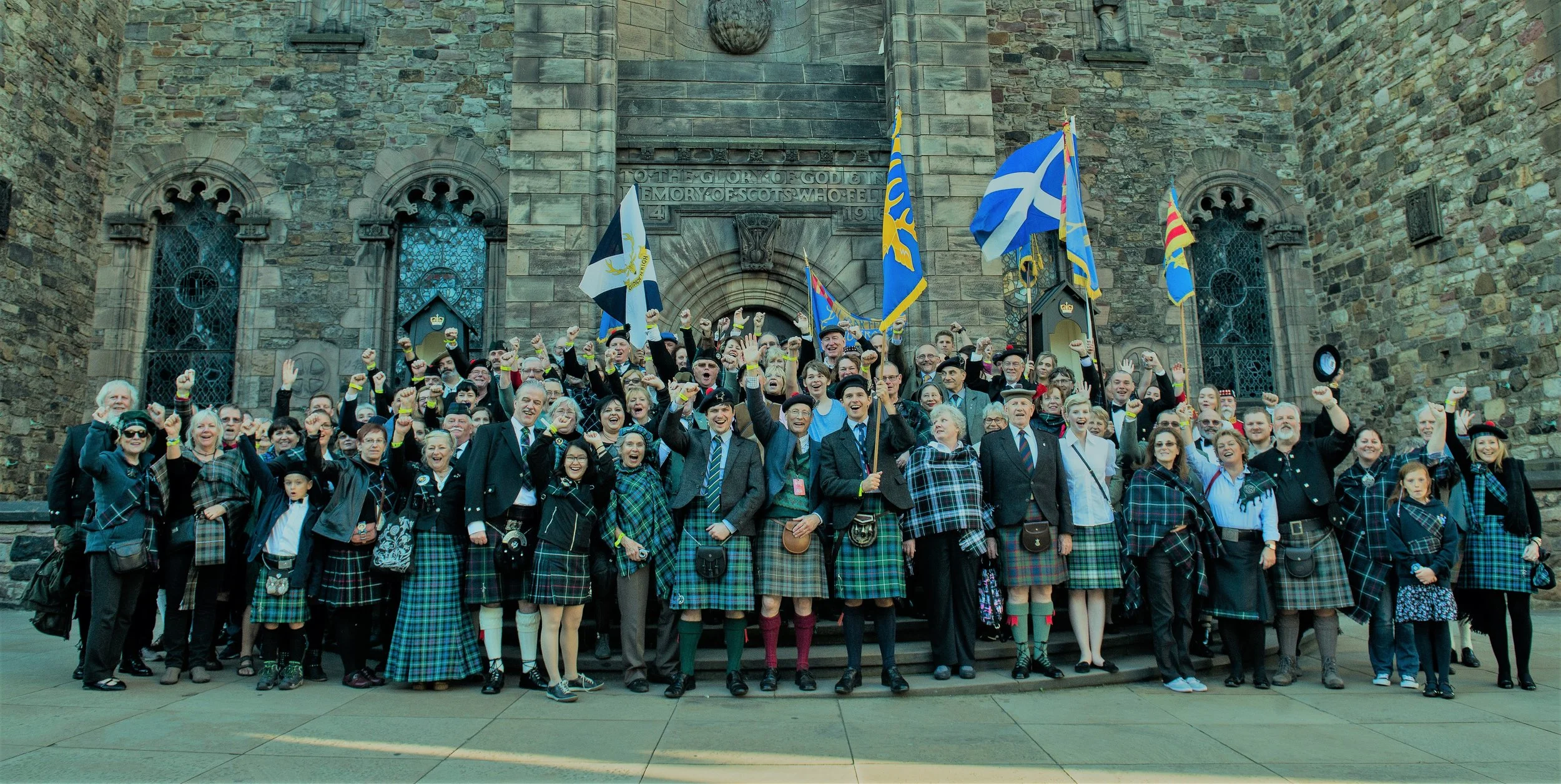MacKenzie Family History
Exploring the depths of time to unearth your family history is an engrossing, captivating, and sometimes challenging journey that can be incredibly fulfilling. With a substantial amount of hard evidence at your disposal, you can make a swift beginning, and numerous resources are available to assist you. However, more often than not, you may find yourself with minimal information, perhaps some nebulous oral history or photographs, transforming the task into one of detective work, persistence, intuition, and perhaps a bit of fortune. In the absence of well-documented ancestors, the most you might hope for is to compile names, dates, and places, with the real pleasure lying in uncovering as much as you can about the eras they experienced to piece together their stories.
Our own research began following the death of our father in 2005, the realisation that our time is relatively fleeting, how little of our more ancient past was known and the desire to hand on to our descendants our family footprints. We were relatively lucky in knowing all of our grandparents, who were all born at or around the turn of the 19th century who were fortunate enough to be too young and then too old to suffer the immediate consequences of the carnage of the two world wars that so blighted the 20th century.
What we had to go on was;
Birth, marriage, and death certificates for the past generation. Very useful as a starting point.
Vague oral tradition relating to our fathers side. Useful but not totally reliable.
Sepia photographs going back to the early 20th century but no notes or dates. Frustratingly useless in the beginning but potentially very valuable as more information comes to light.
The oral tradition was that our great grandfather was from Dornoch, in the Highlands of Scotland and came down to Edinburgh as a young man, never to return. He died unfortunately before either of us were born so we have no recollection of him. There was a family joke that he referred to all Highlanders as ”Teuchters”, a somewhat derogatory term used by Lowland Scots to describe a Highlander, usually Gaelic speaking, as uncouth or rural in character. The fact that he was a native Gael himself seemed to have been lost on him! However, it is also, perhaps, symptomatic of the prevailing thinking of that time, that a Highland culture was something to be looked down on and to be ashamed of.
Armed with both my fathers and grandfathers birth certificates and a rough idea of dates, it’s a relatively easy matter to search the “Scotland’s People” website provided by the Scottish Government through which it was confirmed that our great grandfather Donald had indeed been born in Dornoch in 1873, one of six children born to Donald and Betsy (nee MacKay). He had two older siblings, Alexander, born in 1871 and Georgina, born in 1869, both Golspie (sadly Georgina died in infancy aged 3) and three younger, Jane Ann 1875, Eliza, 1877 and John, 1881. Donald, our great great grandfather died in 1881, just after John was born.
As regards this generation, our great grandfather, Donald moved to Edinburgh sometime around the turn of the century and remained there until his death in 1955, working as a master baker in the Capital. He married our great grandmother Mary (nee Hope) in 1903 and from this union, three children were produced – our grandfather Daniel in 1904 and great uncle George, then Elizabeth who died aged 1 in 1911. Our grandfather Daniel, married our grandmother Georgina (nee Buchanan) in 1927 and 2 years later our father Kenneth Daniel was born. As far as the others are concerned, there is scant information. John, the youngest stayed in Dornoch until his death in 1948. He’s variously registered as a golf club maker and a general labourer in census records and on his death certificate. He lived with our widowed great great grandmother Betsy until her earlier death in 1925 and never married. Alexander, it would appear emigrated but where exactly he emigrated to is unknown at this point (USA or Canada seems most likely), Jane Ann disappears after the 1891 census, where at 16 she is listed as a nurse, Eliza married (who, where and when unknown) but she is listed as a widow when she arrived at Ellis Island in 1920 aged 43. It is possible that her late husband was a casualty of the Great War and she elected to go to join her brother in North America. All this is conjecture however and the fun will be trying to put more flesh to the bones of this story.
The Cottage in Dornoch where 8 people lived! (the top floor is a modern extension)
Dornoch Burgh School 1890. Our Great Uncle John is back row second from right
Following the route back from the Dornoch roots for another generation was relatively simple as Census records started in 1841 and helped in one way by the family being relatively static in the Sutherland and Ross and Cromarty area but being frustrated by MacKenzie being a (not surprisingly) common name in this part of the world. However, the earliest written verifiable record uncovered so far has been our great-great-great-great grandfather, Simon MacKenzie which in the Parish records of Fodderty records that on 1st February 1765 Roderick MacKenzie and Mary Chisholm presented a son baptised Simon. As yet, it has been difficult to get any more information on Mary and Roderick, although the latters death was recorded in Rosemarkie on 19th March 1812. It is clear then that our earliest traceable ancestors would have been born into the tumult of the aftermath of the 1745 Jacobite rebellion and the subsequent subjugation of the clans and the Highland culture and way of life by King Georges forces. The progress of the family history from that point pretty much mirrors that of the Highlands in general. Their occupations until the middle and later part of the 19th century were listed as farmer, then crofter, then dispossessed of their lands, as bakers and fleshers (butchers) and the like as they moved into the larger township in Ross-shire to make a sustainable living.
Our family story then is not unusual for these times, good and bad, dealing with infant mortality and the quest to better oneself through enterprise, education and emigration. It does not take a great leap of imagination to picture in your minds eye some of these people venturing to new lands, setting sail from shores they would never see again and riding across the prairies, eyes fixed on the horizon in search of a new life. Our lives have become so different to our ancestors in so many ways and made so much easier through their endeavours. Of those we have traced, their footprint is not a significant one. There are no records of extraordinary feats of heroism or enterprise, their names are not recorded in any history books, there are no monuments erected in their honour and indeed there is not even a marker on many of their graves to say that they were even here. They were just ordinary, honest, sonsie people, who although perhaps living through extraordinary times, did nothing noteworthy other than living hard-working, decent lives in the midst of all that and although there are no footnotes in history to record their passing or shed light on their existence, they have left their mark in one way or another on those of us who have followed on and perhaps these values are the greatest legacy that anyone can pass on.



